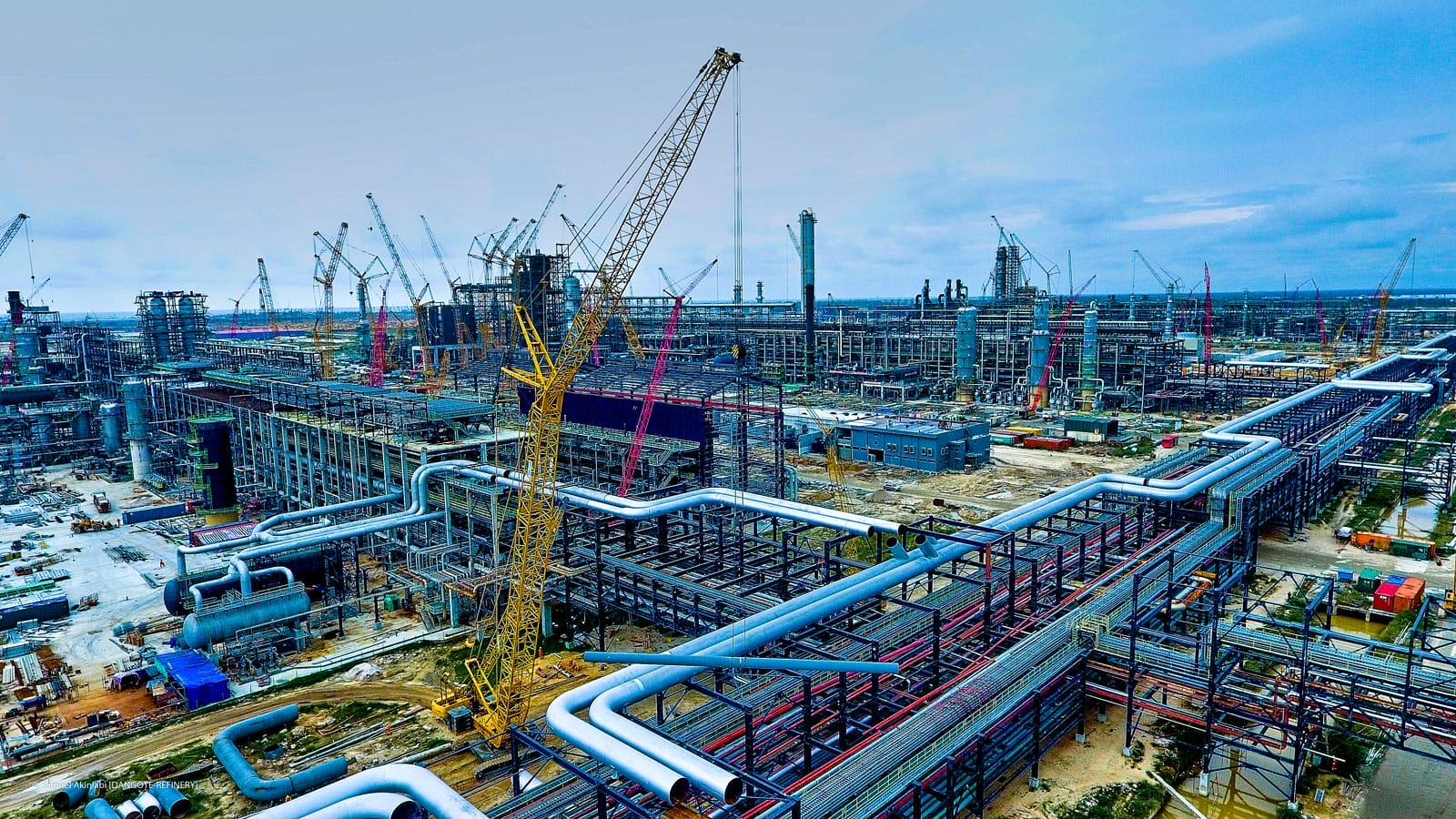In a bold move set to transform Nigeria’s petroleum downstream sector, the Dangote Petroleum Refinery has announced it will begin free nationwide delivery of premium motor spirit (petrol) and diesel to licensed marketers and bulk consumers starting August 15, 2025.
The initiative, which will leverage a newly acquired fleet of 4,000 compressed natural gas (CNG)-powered tankers, marks a strategic shift in how refined products are distributed across the country. In addition, over 100 mobile CNG tankers and CNG daughter booster stations will be deployed to support this ambitious logistics framework, reinforcing Dangote’s commitment to cleaner energy solutions and efficient fuel delivery.
Game-Changer for the Nigerian Market
This development comes just months after the refinery began selling diesel and aviation fuel into the domestic market, breaking decades-long reliance on imports and middlemen. Now, by eliminating third-party depot logistics and absorbing delivery costs, Dangote Refinery is effectively resetting the dynamics of fuel pricing and access in Nigeria.
Under the plan, no delivery fees will be charged to:
- Major and independent petroleum marketers
- Large-scale manufacturers
- Telecommunications providers
- Aviation firms
- Government and institutional buyers
This approach is designed to streamline product distribution, eliminate supply chain delays, and reduce cost pressures on end-users, especially in rural and underserved regions.
Credit Facilities for Bulk Buyers
To further incentivize large-scale transactions, the refinery is offering a two-week credit window to bulk buyers who purchase a minimum of 500,000 litres of fuel. Qualifying customers will also be eligible to receive an additional 500,000 litres on credit, secured by an approved bank guarantee.
This financing scheme aims to support cash flow for downstream operators and enable them to maintain adequate stock levels in a fluctuating macroeconomic environment.
Downstream Reform and Competitive Positioning
Industry analysts have lauded the move as a potential catalyst for the liberalization of Nigeria’s downstream oil sector. Previously, the Nigerian National Petroleum Company Limited (NNPC) served as the exclusive fuel importer and distributor. However, the commissioning of the 650,000 barrels-per-day Dangote Refinery has started to reconfigure that monopoly, allowing private buyers and marketers to source products directly.
“This is a significant development. For the first time, marketers can buy directly from a Nigerian refinery, get product delivered at no extra cost, and manage their own pricing margins more flexibly,” said Bala Rufai, an energy economist based in Abuja.
With Dangote Refinery’s output set to increase in the coming months, analysts expect more price competitiveness and greater fuel availability across the country. Some market watchers also predict that this initiative could pressure other importers or depot owners to review their pricing and delivery terms to remain competitive.
Environmental & Economic Considerations
Dangote’s decision to use CNG-powered tankers underscores its broader strategy to reduce emissions and support Nigeria’s energy transition goals. The refinery has been vocal about integrating sustainable energy practices into its logistics and production lines.
In economic terms, the initiative could deliver cost savings across multiple sectors from transportation and agriculture to manufacturing and telecoms, especially as energy expenses account for a significant share of operational budgets.
Looking Ahead
With delivery scheduled to begin on August 15, stakeholders across Nigeria’s fuel supply chain are bracing for a potential reset in distribution patterns, pricing models, and competitive dynamics. The success of this rollout will be closely watched by regulators, consumers, and regional markets alike.
For marketers, transporters, and bulk consumers, Dangote’s latest move offers not just a cost advantage but also a glimpse into the evolving structure of Africa’s largest fuel economy.

